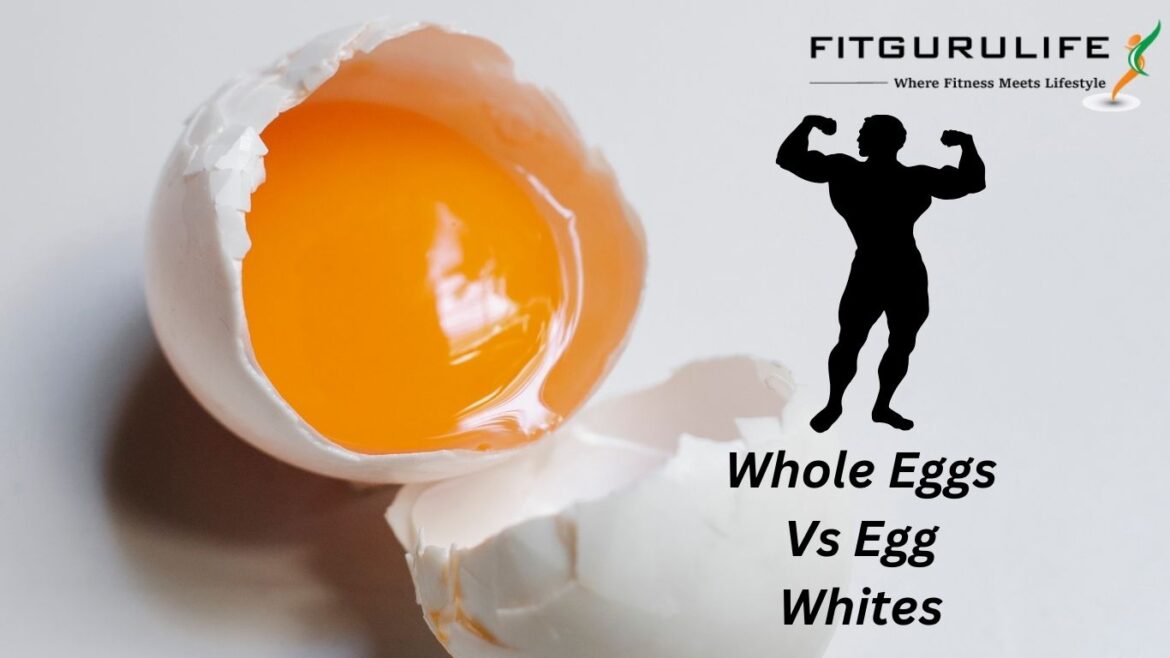Eggs: nature’s protein-packed wonder-food. For decades, athletes, bodybuilders, and fitness enthusiasts have turned to eggs as a reliable protein source to fuel their muscle growth. But a lingering debate remains: when targeting muscle growth, should one opt for whole eggs or just the egg whites? Let’s delve deep into this topic, comparing the nutritional profiles, muscle growth benefits, misconceptions, and practical aspects of both.
The Nutritional Overview
Before diving into muscle growth specifics, understanding the nutritional composition of both whole eggs and egg whites is essential.
Whole Eggs:
- Protein: Each large egg provides approximately 6 to 7 grams of protein, distributed between the white and the yolk.
- Fats: All the fat in an egg is found in the yolk. This includes both saturated and unsaturated fats, as well as essential omega-3 fatty acids.
- Vitamins & Minerals: The yolk is a treasure trove of nutrients, boasting vitamins A, D, E, K, and B12, and essential minerals like selenium, zinc, and iron. Additionally, it’s one of the few natural dietary sources of choline, crucial for brain health.
- Calories: Roughly 70 calories per large egg.
Egg Whites:
- Protein: Nearly pure protein, with about 3 to 4 grams per large egg.
- Fats: Virtually absent.
- Vitamins & Minerals: While not as nutrient-rich as yolks, egg whites still contain essential nutrients like riboflavin and selenium.
- Calories: About 17 calories per large egg.

Muscle Growth and Protein Quality
Protein is the linchpin for muscle repair, recovery, and growth. But not all proteins are created equal.
Both whole eggs and egg whites provide a ‘complete’ protein source, meaning they contain all nine essential amino acids necessary for protein synthesis in the body. But how do they fare in promoting muscle growth?
Research Insights: A landmark study from the University of Illinois compared the muscle protein synthesis response of individuals who consumed either whole eggs or egg whites after resistance training. The result? Those who ingested whole eggs showed a 40% greater muscle protein synthesis rate than their counterparts.
While the exact reasons remain under investigation, researchers speculate that the array of nutrients in the yolk may work synergistically with the protein in promoting muscle growth.
The Cholesterol Conundrum
One of the main reasons many ditch the yolk is the cholesterol content. Historically, egg yolks were demonized for their high cholesterol, purportedly contributing to elevated blood cholesterol and heart disease risk.
However, modern science offers a different perspective. Numerous studies have indicated that for the majority of people, dietary cholesterol (like that in eggs) has minimal impact on blood cholesterol. Furthermore, emerging research suggests that eggs might shift LDL (bad) cholesterol particles to a larger subtype, considered less detrimental.
It’s essential to remember that while cholesterol is often stigmatized, it plays vital roles in the body, including being a precursor for vitamin D and steroid hormones.

Practical Considerations: Budget, Taste, and Culinary Uses
Budget: Whole eggs are generally more economical than purchasing egg whites separately, especially when considering the nutrient density they offer.
Taste and Texture: Whole eggs provide a richer flavor and creamier texture, which many find more satisfying and palatable than just egg whites.
Culinary Uses: Whole eggs offer versatility in the kitchen. While egg whites can be used for omelets, scrambles, and protein shakes, the yolk’s fats provide a distinct taste and are essential for various recipes, from baked goods to sauces like hollandaise.
Sustainability and Ethical Considerations
When discussing egg consumption, it’s worth considering sustainability and animal welfare. Whole eggs generate less waste, as using only the whites often means discarding the yolks. Additionally, sourcing eggs from local, free-range, or organic farms can contribute to better animal welfare and a smaller environmental footprint.
Individual Goals and Dietary Restriction
The “best” choice between whole eggs and egg whites can also hinge on individual goals and dietary needs:
- Caloric Intake: Those strictly counting calories might opt for egg whites to increase protein intake without the additional calories from fat.
- Fat Intake: Individuals on a ketogenic diet or a higher-fat diet might prefer whole eggs to meet their fat macros.
- Sensitivities and Allergies: Some individuals might be allergic to either the protein in egg whites or components in the yolk, guiding their choice.

Conclusion
When the question is framed around muscle growth specifically, whole eggs appear to have an edge due to the synergistic effect of the nutrients they contain. However, the choice between whole eggs and egg whites is multifaceted, depending on individual nutritional needs, tastes, budget, and ethical considerations.
For those undeterred by cholesterol concerns and looking to maximize muscle growth, integrating whole eggs into their diet might be the golden ticket. However, it’s always essential to consider the broader dietary context and personal goals before making a final decision.
Also read :Cracking the Myth: How Whole Eggs Supercharge Muscle Growthhttps://fitgurulife.com/2023/10/17/cracking-the-myth-how-whole-eggs-supercharge-muscle-growth/
